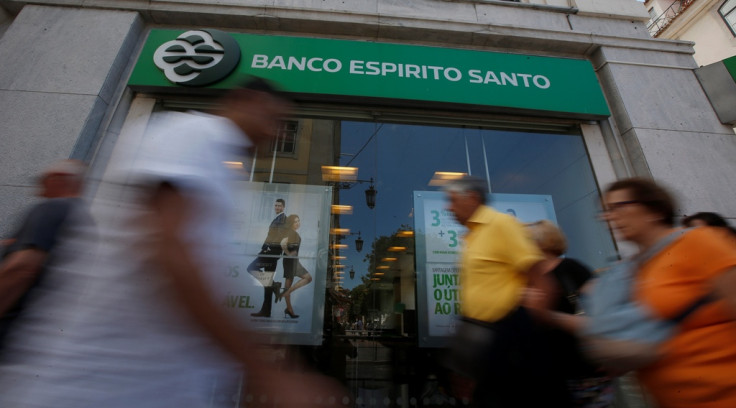Banco Espirito Santo Crisis: Regulators Impose Temporary Short Selling Ban

The Portuguese markets regulator, the CMVM, and the UK's Financial Conduct Authority have imposed a one-day ban on the short selling of shares in troubled Banco Espirito Santo to protect its market cap and prevent instability spreading to the wider banking sector.
The FCA said the temporary short selling ban of BES shares on 11 July affects anyone trading on any UK venue, with exemptions for certain market making transactions.
The CMVM suspended trading in BES shares yesterday after these fell by more than 17%.
Espírito Santo Financial Group, which owns 25% of BES, announced that it was looking into the bank's exposure to Espírito Santo International, the Luxembourg-based parent company for the family group, which has delayed payments on some short-term debt.
Shares in Espírito Santo Financial Group were also suspended because of "ongoing material difficulties" at its parent company, Espírito Santo International.
This week's downward spiral has knocked 32% off the bank's market value and has dragged down Portugal's main stock index with it.
Nordea Markets, in a note to clients, said the Portuguese case showed that there were "still vulnerable banks out there". Nordea warned that more such incidents were "likely to surface ahead of the ECB's stress tests" but added that likely future episodes will not trigger a wider financial crisis.
Earlier, on 10 July, BES said it remains protected despite problems at parent companies Espirito Santo International (ESI) and Espirito Santo Financial Group (ESFG).
BES said that it had €2.1bn (£1.7bn, €2.8bn) of additional capital beyond the minimum that it is required to maintain.
BES also added that it will not increase its total exposure to ESFG and that it awaits the release of the ESFG restructuring plan in order to assess the potential losses it may have suffered owing to its exposure.
ESI owns 49% of ESFG, which in turn owns a quarter of the bank.
"[The] BES executive committee believes that the potential losses resulting from the exposure to Espirito Santo Group do not compromise the compliance with the regulatory capital requirements," the bank previously said.
Meanwhile, the International Monetary Fund (IMF) put out a statement saying: "The Portuguese banking system has been able to endure the crisis without significant disruption, aided by substantial public capital support and extraordinary measures from the ECB.
"However, as the Bank of Portugal acknowledges, pockets of vulnerability remain, warranting corrective measures in some cases and intrusive supervision in others. The IMF does not comment on individual financial institutions."
Market Turmoil
The Dow Jones Industrial Average finished 0.4% lower on 10 July, after falling as much as 1.1% in intra-day trade, on fears surrounding BES and the Portuguese banking sector, sparked after ESI this week delayed payments to some holders of its short-term debt securities.
Earlier on 10 July, Portugal's benchmark index dropped 4.2% while BES's stock tanked 19% before being suspended.
Markets in Spain and Italy lost some 2% each. The Stoxx Europe 600 index shed 1.1%.
© Copyright IBTimes 2025. All rights reserved.






















